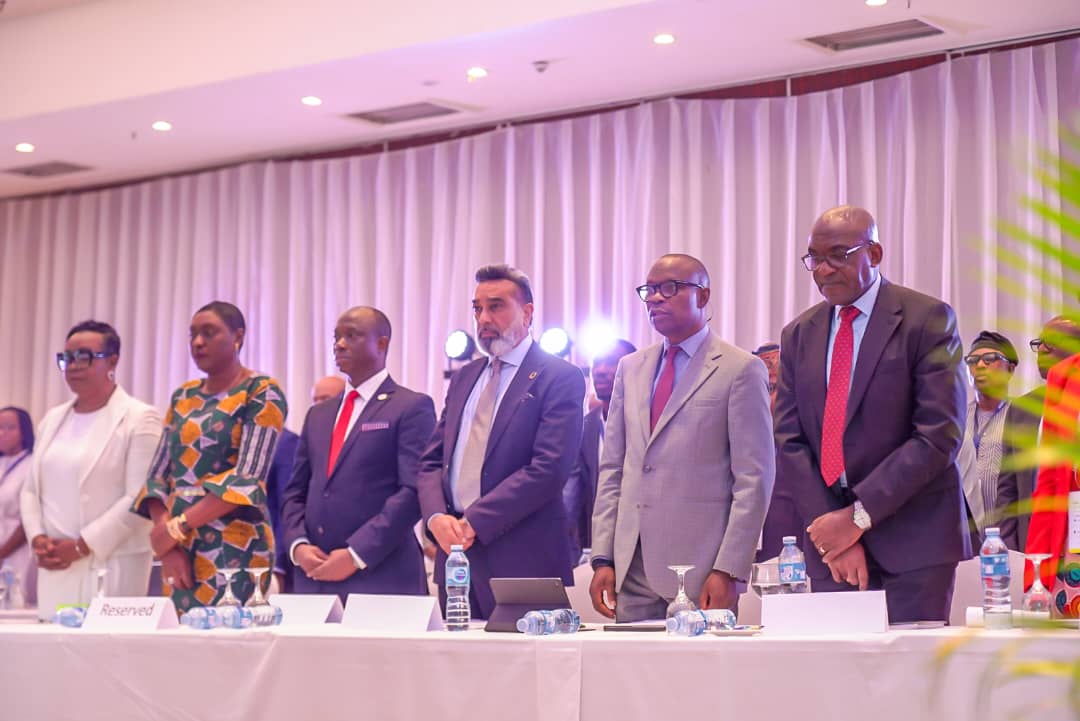By Iyemah David
The Federal Government of Nigeria has reiterated its commitment to achieving Universal Health Coverage (UHC) by 2030.
The Minister of State for Health and Social Welfare, Dr Iziaq Adekunle Salako,who made the statement, called on African nations, private sector stakeholders and international partners to ramp up investments and innovation in healthcare.
The minister made the call on Wednesday during the African Health Business (AHB) Symposium in Abuja.
The theme of the symposium was “Leveraging Innovation to Advance Universal Health Coverage.”
The forum convened health leaders, investors and development partners across Africa.
Dr Salako said that Africa must act 10 times faster if it hopes to meet UHC targets.
He cited World Health Organisation (WHO) data that showed that the continent’s Service Coverage Index rose by just one point per year, from 23 in 2000 to 44 in 2021.
“Health is everything, and nothing can be more important than a mechanism that guarantees healthcare access for everybody,” he said.
The minister highlighted Nigeria’s efforts through the Health Sector Renewal Investment Initiative, part of President Bola Ahmed Tinubu’s Renewed Hope Agenda.
He said that Key reforms included the National Health Insurance Authority (NHIA) Act, the Basic Health Care Provision Fund (BHCPF), and the planned upgrade of 17,000 primary health centres by 2027.
He said that Nigeria had recorded a 15 per cent increase in health insurance coverage, with health insurance agencies now operational in all 36 states and the FCT.
He also spotlighted the Presidential Initiative for Unlocking the Healthcare Value Chain (PVAC), which is designed to boost local pharmaceutical production.
“An executive order by Mr President has removed tariffs and VAT on pharmaceutical raw materials to encourage affordability and reduce dependence on imports,” he said.
Dr Salako said that Despite these milestones, Nigeria’s UHC journey faced critical challenges, including underfunding, inadequate infrastructure, human resource gaps and high out-of-pocket expenses.
“Our goal is to build a health system that earns trust, leaves no one behind and mobilises both public and private sector investments,” he said.
He outlined key areas for urgent attention, which include ensuring sustainable financing by mobilising domestic resources and reducing reliance on donor aid.
He also highlighted the need to harness digital health innovations such as artificial intelligence, telemedicine and electronic medical records.
The minister stressed the importance of strengthening local pharmaceutical and diagnostic value chains.
He called for the development of climate-resilient health systems to address emerging threats such as climate change and future pandemics.
Salako urged African governments to treat health as an investment and not just a cost, and called for multi-sectoral collaboration and people-centred leadership to accelerate progress.
“Let us leave this symposium not just with ideas, but with concrete partnerships and policies.
“Nigeria is open for business and ready to collaborate with all stakeholders,” he said.
The symposium is expected to generate actionable commitments and foster new partnerships, propelling Africa closer to delivering quality, affordable and inclusive healthcare services for all.




